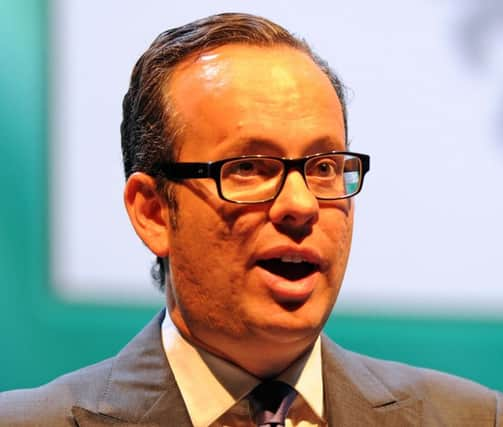Michael Hayman: The fight is on to attract the best talent


Recruitment is set to become an issue central to the future of UK growth.
Time and again it is the lament of the entrepreneurs I meet. We have the ambition but can’t find the people.
Advertisement
Hide AdAdvertisement
Hide AdMake no mistake, the scales of supply and demand have tipped decisively from the employer to the employee. Britain’s got talent, but not nearly enough of it.
Right now there are around 35,000 unfilled vacancies in London technology jobs.
It’s a problem that is set to intensify and it introduces many great firms to a new type of risk; a shortage not of profits, but people.
So the search is on for oases of talent that can solve the skills drought.
Advertisement
Hide AdAdvertisement
Hide AdThat is an opportunity Yorkshire cities and towns can seize, and indeed are well placed to do so.
Not only is Yorkshire home to some of the nation’s leading universities, but it is the only region outside of London which is a net importer of graduates.
In the digital economy, a magnet for young talent, Yorkshire is home to some of the biggest and fastest-growing technology clusters in the county, from Leeds to Sheffield and Hull.
Now, those businesses and cities must ready themselves for a major change that is coming. The year to circle is 2025.
Advertisement
Hide AdAdvertisement
Hide AdBy then, Millennials will form 75 per cent of the UK workforce. This is a generation that has grown up in a world that is more connected, more transparent and more technological.
One that expects more from their job than just a pay packet, and demands fulfilment as well as financial compensation. Companies and cities have a decade before the reins of commercial power are taken by people with different ideas, different expectations and different standards when it comes to business.
It is places that prepare now for this change that will become the most powerful magnets for talent.
Across Yorkshire cities, the seedbed, from fast growing technology hubs to world-class universities, has been planted.
Advertisement
Hide AdAdvertisement
Hide AdWhat must come next is something that will be more felt than seen: a co-ordinated, collective sense of place, and purpose. An identity and values that can be shared by those who live and work there.
It is something more delicate than bricks and mortar.
What does the city stand for? Can I grow my life here? Can I fulfil my potential?
An example that sticks in my mind is Austin, state capital of Texas, which I visited while writing my book Mission, on the rise of the purpose-led business.
It is a place which exudes purpose, and which is visibly proud to be the capital for a new type of business: conscious capitalism.
Advertisement
Hide AdAdvertisement
Hide AdBusinesses headquartered there, such as the Fortune 500 firm Whole Foods, are not there by chance, but as part of an Austin tribe.
What a place like Austin shows is that purpose is as important to successful places as it is businesses.
Think of it this way, the prize for Yorkshire’s cities is that they could be seen as places where you can do well and do good at the same time.
That assertion of mission could make them powerful players in the place race.